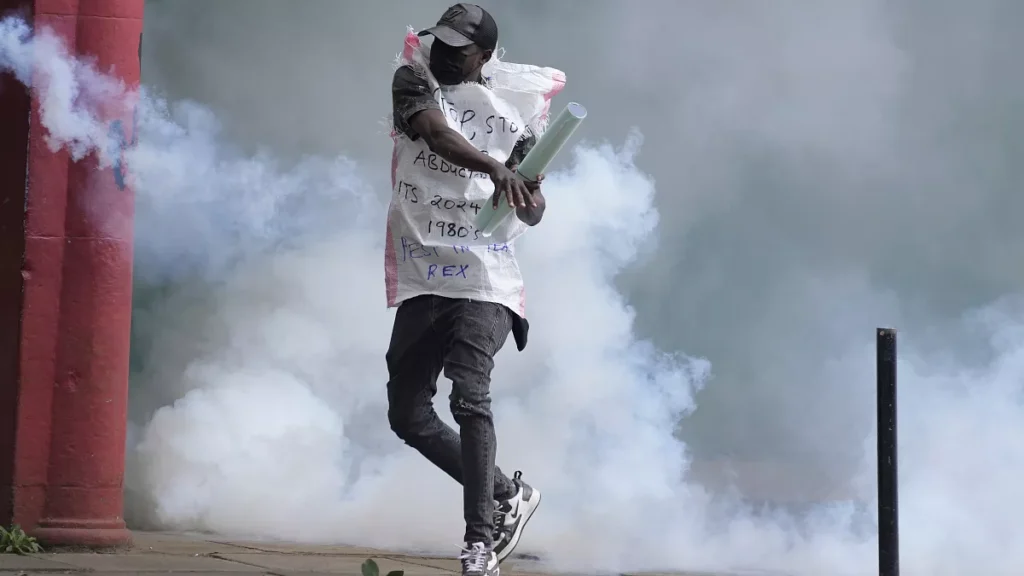Kenyan police clashed with protesters in Nairobi on Thursday ahead of planned demonstrations against a contentious finance bill, despite President William Ruto’s decision not to sign it following deadly chaos in the capital. Last week’s violent scenes included protesters storming and setting fire to part of the parliament building.
Protesters, who had announced their intention to march to State House on Thursday, expressed continued distrust towards President Ruto despite his assurances of withdrawing tax hikes and implementing budget cuts.
Police deployed tear gas canisters to disperse groups attempting to gather in the central business district. The military presence persisted despite a court order on Wednesday suspending their assistance to the police during protests.
Deputy President Rigathi Gachagua called on young protesters to abandon their plans for demonstrations and opt for dialogue instead.
Originating online, the leaderless movement initially demanded legislators reject proposed tax increases but later expanded to calls for President Ruto’s resignation after the bill’s passage. Tuesday witnessed thousands storming Kenya’s parliament, resulting in parts of the building being burned and lawmakers fleeing. Police responded with gunfire, reportedly resulting in at least 22 deaths.
Thursday’s protests sparked division among activists. Boniface Mwangi urged peaceful commemoration marches to Parliament Road, where fatalities occurred, rejecting calls for State House invasion as a solution.
In contrast, activist Francis Gaitho persisted in rallying young people to march towards State House.
Commentators warned of heightened stakes compared to previous protests, particularly after Ruto’s declaration on Tuesday to quell unrest “at any cost.”
Analyst Javas Bigambo told The Associated Press that public discontent stemmed from distrust in Ruto’s ability to enforce announced austerity measures.
“Kenyans are still concerned about the economy and government inefficiencies,” he said.
Bigambo critiqued Ruto’s initial response on Tuesday as lacking statesmanship and inciting further protests. He urged the government to regain public trust through dialogue and inclusive budgeting processes.
Businesses in Nairobi bolstered security on Thursday to prevent looting and vandalism witnessed during Tuesday’s unrest.
Access to key government buildings, including parliament, remained restricted due to roadblocks.
Protests also occurred in Mombasa, Kisumu, Migori, and other major towns outside Nairobi.
U.S. Secretary of State Antony Blinken spoke with Ruto on Wednesday, commending steps to ease tensions and urging security forces to exercise restraint amidst allegations of human rights abuses.
Ruto’s recent actions have positioned him as a stable partner in Africa for Washington, despite growing frustration elsewhere on the continent towards U.S. and Western policies.
In a symbolic move, the U.S. designated Kenya as its first major non-NATO ally in sub-Saharan Africa on Tuesday, coinciding with the protests. Additionally, Kenyan police were deployed to lead a multinational effort against gangs in Haiti, earning appreciation from U.S. President Joe Biden.
